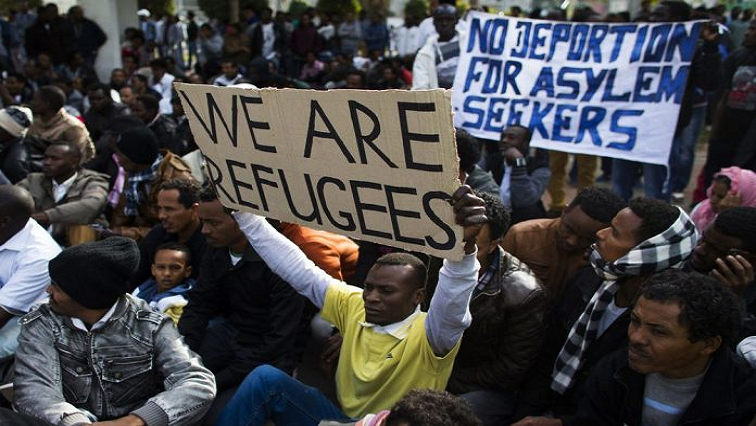The United Nations marks World Refugee Day, focussing on the power of inclusion under the theme “Together we heal, learn and shine.”
The Day, previously known as Africa Refugee Day, has been marked on June 20 since 2001 in recognition of the 50th anniversary of the 1951 Convention relating to the Status of Refugees.
Some 82 million people worldwide were forcibly displaced by the end of 2020 as a result of persecution, conflict, human rights violation or events that seriously disturb public order.
The UN’s Refugee Agency says it has over 20 million people under its mandate with just five countries – Syria, Venezuela, Afghanistan, South Sudan and Myanmar accounting for 68% of all refugees globally.
Key messages from the High Commissioner for Refugees, Filippo Grandi, are focussed around education, highlighting the need for including refugees in national education systems for the benefit of both communities.
“Inclusion is not just the broad pieces of including in educations systems, in health systems; it also goes through a lot of very complicated issues. Regularising is a legal process in a country; receiving documentation, having access to bank accounts – I think it was mentioned – having connectivity. These are all less obvious aspects, which actually in our daily lives we take for granted, you know, we have an ID card, we can log in to the internet, we have a bank account, but if you don’t have these things, and they are very often difficult for refugees, there’s no hope for inclusion, there’s no tools for inclusion,” says Grandi.
Discussion on citizenship and rights of asylum seekers and refugees in SA:
New conflicts like the ongoing crisis in Tigray, Ethiopia, further exacerbate what is already an acute global concern, further stretching humanitarian resources that could further be complicated by an impending drought and famine – at a time when the COVID pandemic remains a going concern.
“International financial institutions have set up massive relief programmes, safety-net programmes to help the economies of these countries after situations of lockdown. So, our aim has been with these institutions to say, when you design a rescue package for the economy of a poor country, and you give them hundreds of millions of dollars in loans or grants, make sure that you factor in the fact that that particular country hosts a large number of refugees, and they also must benefit from whatever help is given to the country,” says the High Commissioner for Refugees.
Grandi was speaking at an event co-hosted by the United States after President Joe Biden in May revised the resettlement camp for refugees in the country at 62 500 – up from just 15 000 set by the previous administration.
His Ambassador to the United Nations, Linda Thomas-Greenfield, says: “I am proud to say that President Biden has acted from day one, to ensure the United States remains a country committed to providing safety for the most vulnerable. The President issued executive orders to rebuild and enhance the US refugee admissions programme and spoken about how we must stand as a beacon of liberty and refuge for the world. As we celebrate the power of inclusion and honour refugees on June 20th, let’s remember the millions of Syrians who desperately, desperately need our help. They and millions of others around the world are counting on us. They are counting on us for life-saving support. They are counting on our common humanity to extend hands in their time of vulnerability and their time of need.”
86% of the world’s refugees are hosted in developing countries, while up to 34 million of the 82 million people forcibly displaced are children below the age of 18.
In conversation with a refugee in SA who fled from the DRC:


